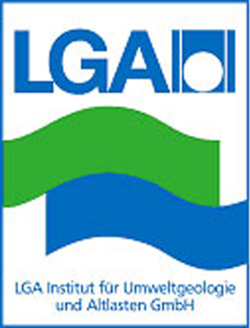Hazardous Materials Remediation
Many old buildings require renovation (i.e. as far as energy consumption or fire protection technology is concerned). The associated reconstruction measures usually involve intervention with the building materials.
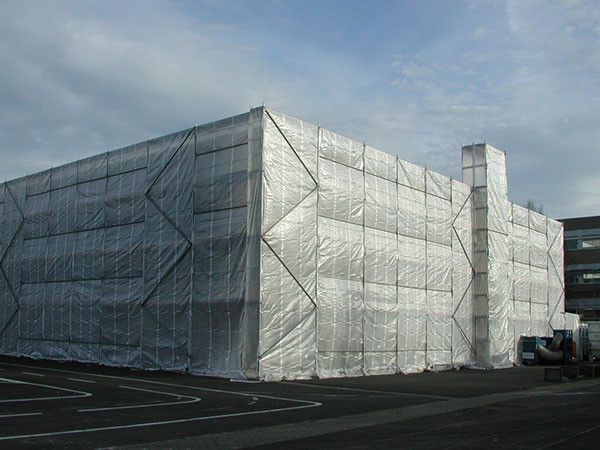
Encapsulation of a building during a pollutant cleanup
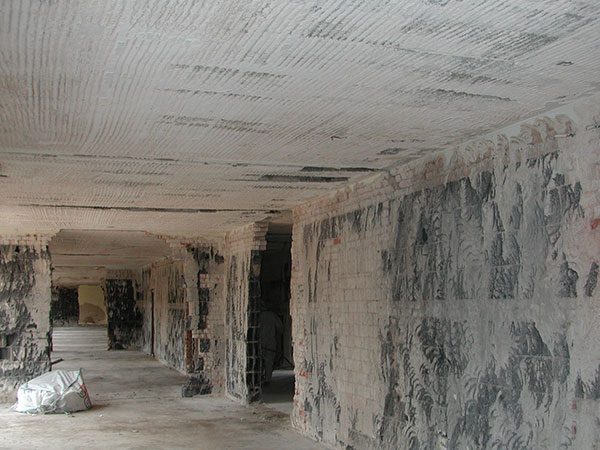
Wall plaster removed with mortising machine
In times of housing shortage and limited building sites, especially in inner-city and densely populated areas, the new use/reuse of wasteland and old sites of industry and commerce is an important factor. Often this requires modification or demolition of (old) building materials.
Building materials in residential, commercial and industrial buildings often tend to be problematic due to the presence of hazardous materials. This particularly concerns existing buildings from the 1960s and 1970s. In some cases there might also be contamination due to current or past use (e.g. oiling in workshops, solvents) or maintenance of the building (painting, disinfection).
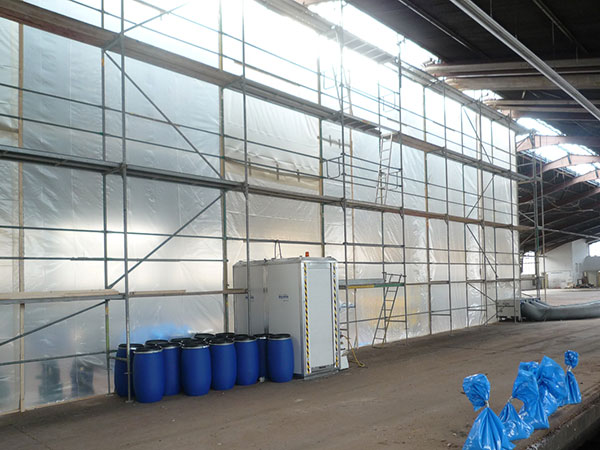
Encapsulation during asbestos abatement
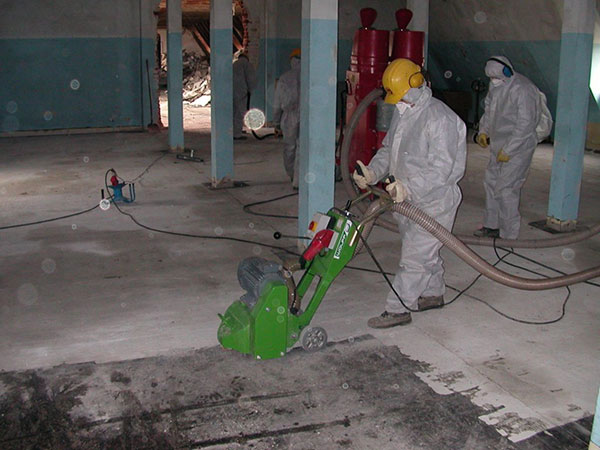
Milling of adhesives containing asbestos
- Investigation of the building materials for hazardous substances (incl. material analyses) at the beginning of the project
- Setting up a remediation concept (if hazardous materials have been determined)
- Removal and disposal of contaminants
- Material analyses (basis for further steps)
- Renovation concepts
- Health and safety plans
- Recycling and disposal concepts
- Bidding documents
- Project management, construction management, construction supervision
The General Association of Hazardous Material Remediation (Gesamtverband Schadstoffsanierung, GVSS) has certified us as “Remediation experts for surveying and planning” for the remediation of buildings and plants impacted with contaminants.
In addition, our institute is qualified as an “Inspection Center for Contaminated Building Material and Construction Waste” to carry out external monitoring and to take on tasks as a head assessor.

Dr. Jürgen Kisskalt
Managing Director
Diplom Geologist
Phone: +49 911 12076 102
Fax: +49 911 12076 110
Mobile: +49 170 33 20 493
Juergen.Kisskalt@LGA-geo.de

Carmen Weiblen
Diplom Geographer
Phone: +49 911 12076 115
Telefax: +49 911 12076 110
Mobile: +49 160 53 72 365
Carmen.Weiblen@LGA-geo.de
LGA Institut für Umweltgeologie und Altlasten GmbH
Christian-Hessel-Str. 1
D-90427 Nürnberg
Phone: +49 911 12076 100
Telefax: +49 911 12076 110
info@LGA-geo.de
bewerbung@LGA-geo.de
News

Expertise according to DGUV 312-906
“Every year again...” - The expert inspection and...

Recognition as a body for radon measurements in workplaces
Recognition as a body for radon measurements in workplaces...

Experts for safety structures against alpine natural hazards
Experts for safety structures against alpine natural...

Membership in the RAL Quality Association
Membership in the RAL Quality Association...

Impulse Online Edition
LGA Impulse - Online Edition With the current summer...
Older articles
